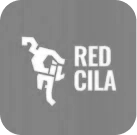Let’s start by saying that what is really key is, precisely, the communication consultant, this one (or this one, who are already in the majority!) understood as an internal or external ‘Jiminy Cricket’. In this post we will talk a little more concretely about the latter, as it is the role that a server currently plays.
To the point. As for the keys to this critical and strategic – not exaggerated – decision, here are a number of key recommendations to ensure the right choice.
The first thing to know is whether you or your company or institution need a generalist covering all areas or disciplines of communication or if you need someone more specialised in a particular area: press, internal communications, crisis, IR, ESG, social media, etc. In the latter case, each area requires a unique set of skills and knowledge, so look for a consultant who can demonstrate relevant experience and a successful track record in the function or sub-specialty you are interested in.
In either case, it is very important to have knowledge of the sector of activity of the company/institution or project. And the more the better, as each has its own peculiarities and challenges in terms of communication. A consultant who understands that particular industry will be able to offer tailored and more effective solutions. Make sure they have previously worked with similar organisations: this will have equipped them with crucial contextual understanding to develop communications strategies that impact your stakeholders (come on, stakeholders) and conform to industry-specific regulations and trends.
Creativity and strategic vision.

You are looking for an advisor who is not only able to think innovatively, creatively and, in some cases, even disruptively, but also has a clear strategic vision. The ability to develop original ideas and execute them coherently within a strategic framework is fundamental to achieving your communication objectives. Find out what he has done previously in this regard, with concrete examples, and how his work has been able to contribute to business objectives.
Adaptive capacity, well, resilience one would say now.

Corporate and institutional communication is constantly evolving, driven continuously by technological advances, changes in consumer preferences and unforeseen events, both internal and external, in the roadmap of organisations. It is crucial that your advisor is able to adapt quickly to these changes and, most importantly, to manage potential crisis situations with the necessary peace of mind. Look for examples of how the counsellor has handled sensitive or complex situations in the past and what steps the counsellor has taken to adjust communication strategies in response to changes in the business environment.
And now, a not so obvious tip : choose a consultant who values transparency and open communication in its relationship with you as a customer. He/she should be willing to listen to your needs and concerns, as well as provide you with regular updates on the progress of the project and the results achieved. Effective communication is not only about communicating messages to external audiences, but also about maintaining clear and open communication within the team.
Finally, and this is pretty obvious, before you commit to your candidate, take the time to research their track record and reputation. Ask for references from previous clients and seek testimonials that support the quality of the consultant’s work and their ability to meet the client’s expectations.
*Article written by Juancho Pajares, consultant and director of Communication and ESG at A Creative





